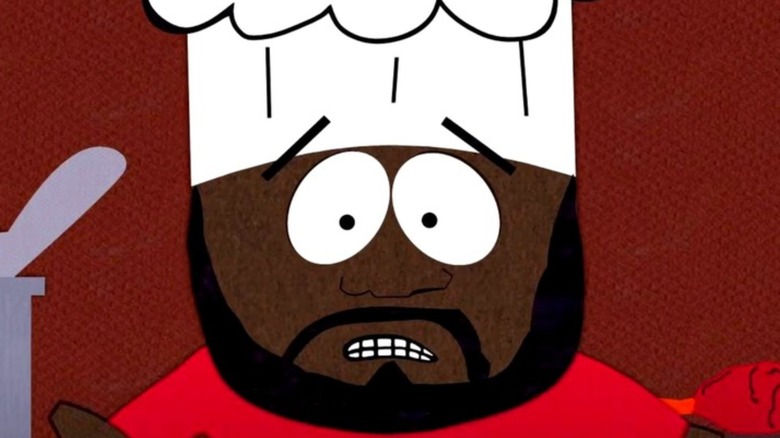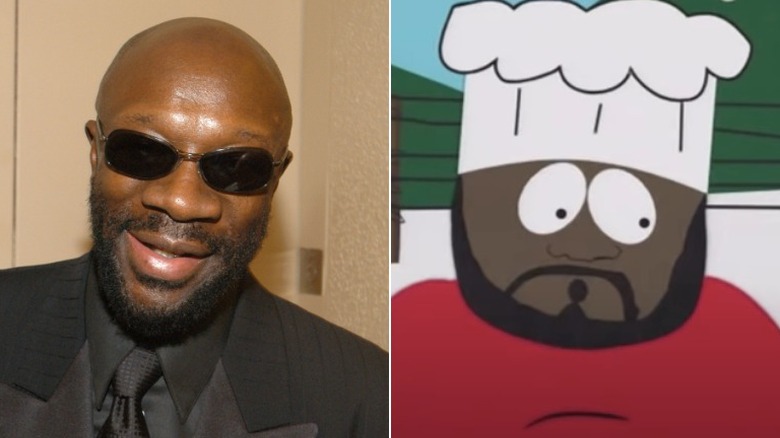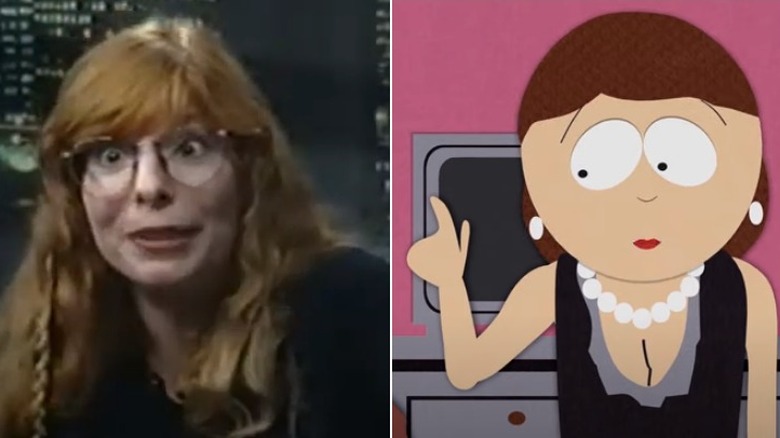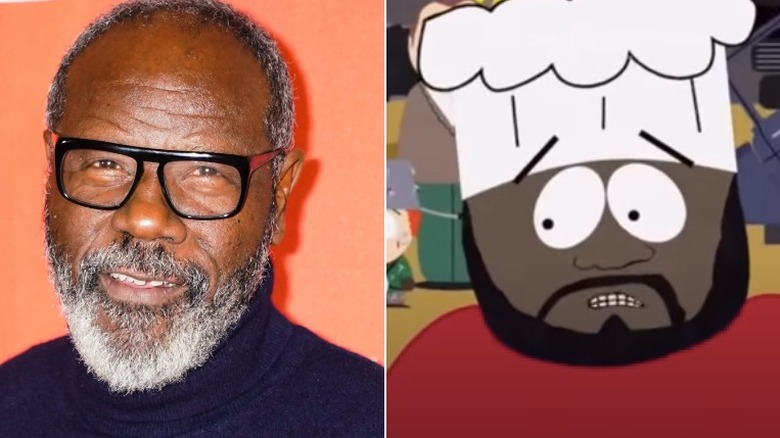South Park Actors You Might Not Know Passed Away
The five-time Emmy award-winning "South Park" debuted nearly three decades ago, and in that time, its been the subject of everything from Graduate Degree theses to studies on the effects of vulgarity on children to articles beseeching parents to let their kids watch the show, such as this one from The Daily Beast. Creators Trey Parker and Matt Stone's willingness to mix shock value, slapstick, and scatological humor with satire and social commentary has kept the Comedy Central cartoon relevant for over 300 episodes and two feature films, and earned it a hefty following worthy of a shiny new deal with Paramount+.
Suffice to say, whether you're a super-fan, a semi-fan, or an adamant detractor of Trey Parker and Matt Stone's "South Park," you're likely pretty familiar with the now culturally pervasive voices of the series' most alternately absurd and beloved characters. Audiences have watched the series' simultaneously overly mature and age appropriately-literal young protagonists navigate the ins and outs of everything from recess fights to gentrification for 25 seasons — a duration that makes it easy to forget that said protagonists are just high-tech, moving drawings. Without the talented actors who give voice and personality to the inhabitants of "South Park," there would be no series. Sadly, some of these actors have passed away in the time since the series began.
Isaac Hayes, the voice of Chef, died in 2008
From 1997 to 2005, soul singer and composer Isaac Hayes served as South Park, Colorado's baritone voice of reason, Chef. His time on the series introduced him to a younger generation, but well before "South Park" was even created, Hayes had long been celebrated for his numerous and revolutionary musical contributions. Hayes' 1969 album, "Hot Buttered Soul," put a whole new spin on the era's understanding of the genre, treating it with what The New Yorker's Emily Lordi called "a more conceptual, introspective approach." In addition to making Rolling Stone's list of 500 greatest albums of all time, the landmark record topped the Billboard R&B album charts and earned Hayes a place in music history — but this was just the beginning.
Two years later, Hayes (well known for his precedent-setting and subtext-heavy use of wearing chains on stage) released the soundtrack to "Shaft," a still-beloved production for which he took home a best original song Oscar and a best original dramatic score nomination. In November of that same year, he debuted the bold and iconic "Black Moses," an album that also remains among his most beloved and popular works (via Albumism).
That Hayes should end up, over two decades later, voicing a character who plays so heavily upon archetypes he helped to create is more than a little (intentionally) ironic. Hayes died of a stroke in 2008, at the age of just 65, but his musical and later comedic legacies still loom large across a range of generations (via The Guardian).
Renowned voice actor Mary Kay Bergman died in 1999
Mary Kay Bergman voiced a seemingly endless list of female characters on "South Park" across 42 episodes in its inaugural and sophomore seasons, establishing the tone, pitch, and personality for Sharon and Shelly Marsh, Liane Cartman, Sheila Broflovski, Kenny's Mom, Mayor McDaniels, Mrs. Crabtree, Principal Victoria, and Wendy Testaburger (among many, many others, per IMDb). Without Bergman, there would also be no Hooked on Monkey Fonics Tape, no Judge Julie, no South Park Barbara Streisand, and no talking female genitalia in "South Park: Bigger, Longer & Uncut." Bergman was, essentially, all the women of South Park, Colorado.
And yet, the series was just the tip of the iceberg for the artist, whose career began back in 1978 with "The Scooby-Doo Show," and whose extensive portfolio includes "Beauty and the Beast," "The Little Mermaid" TV series, "Snow White," "The Hunchback of Notre Dame," several of Disney's animated story books, work on both "Looney Tunes" and "Tiny Tunes," "Space Strikers," "Captain Planet and the Planeteers," "Spider-Man: The Animated Series," "Rugrats," "Zorro," "A Bug's Life," "The Iron Giant," and a litany of TV, film, and video game characters too numerous to name.
In other words, before she was the female voice of "South Park," she was, in a sense, the (most-heard) voice of a generation. Bergman died by suicide in November of 1999, but her innumerable contributions to film, television, and countless childhood memories left behind a lasting and still-celebrated legacy.
If you or anyone you know is having suicidal thoughts, please call the National Suicide Prevention Lifeline by dialing 988 or by calling 1-800-273-TALK (8255).
Jean-Michel Martial, the Chef of French South Park, died in 2019
If you've never partaken in the absolute delight that is French-dubbed "South Park," now might be the time to treat yourself to a whole new, and yet entirely familiar, version of Chef (via YouTube). That oh-so-Isaac-Hayes-sounding voice you hear in the video is the work of French actor and documentary director Jean-Michel Martial.
His work on "South Park" notwithstanding, Martial was better-known for his performances in front of the camera. From 1989 to 1992, he portrayed Inspecteur Rosine on the French detective series, "Le triplé gagnant." In 1998, he landed a lead role in Christian Lara's critically-acclaimed "Bitter Sugar," and would go on to enjoy recurring roles in several French series, including "Bitter Tropics," "Platane," and, most recently and most famously, the long-running "Profilage." The series, created by Fanny Robert and Sophie Lebarbier, follows quirky and endearing profiler Chloé Saint-Laurent (Odile Vuillemin) as she works with detectives to get into the minds of and track down murderers. Martial portrayed Commissaire Lamarck (the team's senior police officer) in over 100 episodes beginning in 2009.
Upon his death in 2019 following a long illness, a number of French celebrities and politicians took to social media to pay tribute to the star, including President of the Regional Council of Île-de-France Valérie Pécresse and the Socialist Party's George Pau-Langevin, who said Martial "broke through at the national level both in theater and in cinema [and was] also a committed citizen, who did not hesitate to participate in community life."



